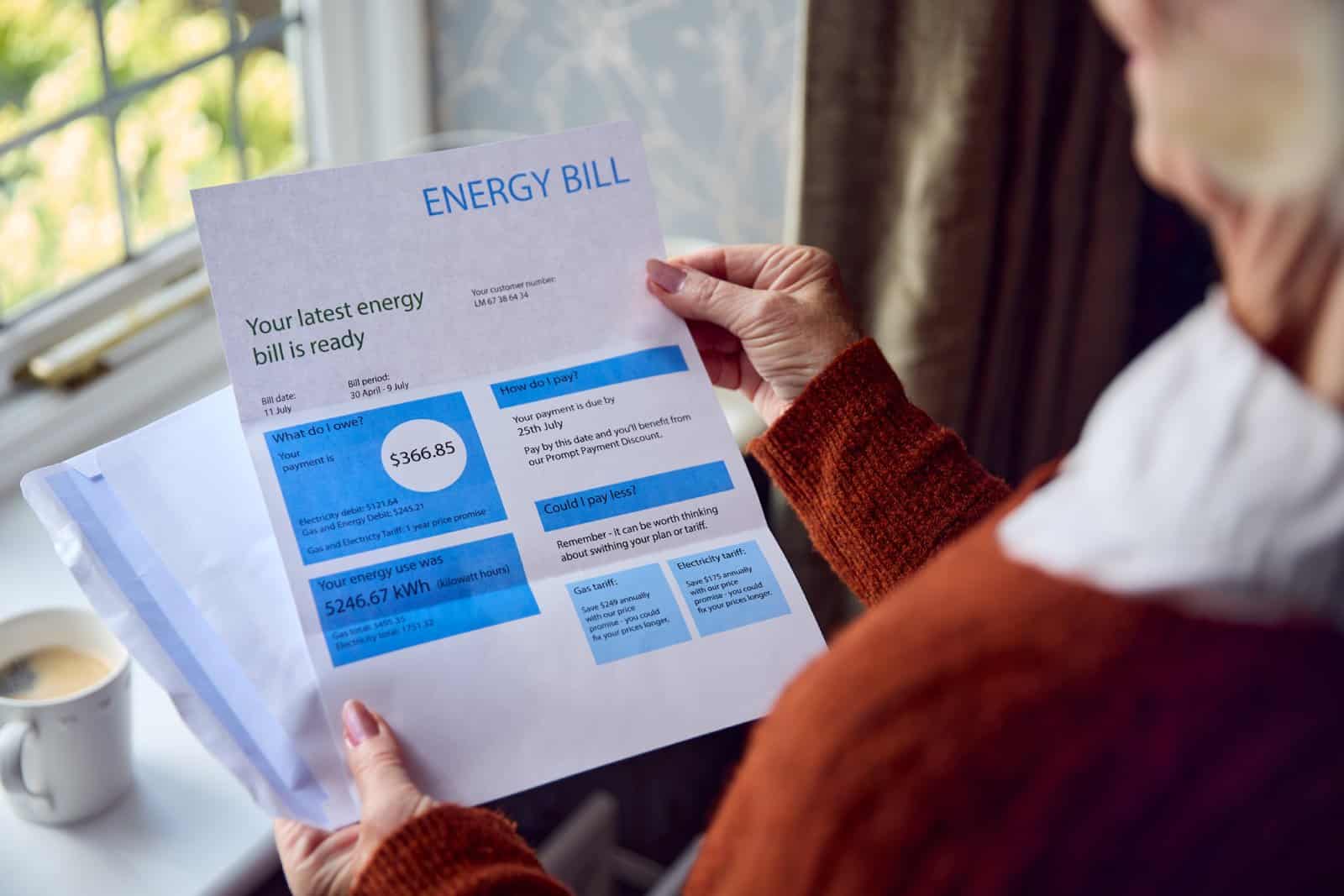If you’re a resident of California, you may be in for a surprise the next time you open your utility bills after some recent changes were made to the billing structure.
Energy Bills on the Rise

With energy bills on the rise and people struggling across the nation, you may be holding out hope for something to ease the pressure. Well, if the new changes to how California residents will pay their bills are any indication, some of you might be in luck – and some might not.
California’s New Billing Structure

Last week, electricity regulators made a controversial move. Although hundreds of people across California phoned and wrote in complaints, the California Public Utilities Commission (CPUC) voted unanimously (4 to 0) to approve a new billing structure for electricity payments, which includes a new monthly fixed charge on bills and a reduction in the electricity usage rate.
Monthly Fixed Charge

To sum it up, residents of California will now pay a mandatory $24.15 each month – over twice that of the national average – and, in return, will pay less for each kilowatt of power.
Reduction in Electricity Usage Rate

The CPUC states that most customers’ kilowatt rate will be reduced by between 5-7 cents per kilowatt-hour.
Late 2025 Rollout

This new billing structure will go into effect in late 2025 and will only be used by the state’s investor-owned utility companies like San Diego Gas & Electric and Southern California Edison. Any customers of government utilities will not see any changes to their bills.
CPUC President’s Perspective

CPUC President Alice Reynolds had this to say, “This billing adjustment makes it cheaper across the board for customers to charge an electric vehicle or run an electric heat pump, which will spur greater uptake of these technologies that are essential to transitioning us away from fossil fuels.”
Opposition Voices

However, this move has not been welcomed by everyone.
Concerns Raised Against the New Structure

Lawmakers, consumers, and energy research groups are strongly opposed to the plans, which they argue will make life tougher for millions of Californians who live on their own or in small apartments and don’t use a lot of energy.
Analyzing the Financial Impact

An analysis by research group Flagstaff found that while 20% of customers would see significant savings (between $328 – $474/year), over 50% would see their bills increase by between $65 to $225/year – and these increases would predominantly hit people and families living in small homes, and who use lower amounts of electricity.
Disproportionate Impact

Flagstaff indicated that the savings would be felt most by families that already use a lot of electricity and live in multi-family homes.
Vulnerable Consumers

Those hit hardest by the increases are likely to be seniors, people who rent, people who use solar energy, and working families.
Criticisms of the New Structure

Opponents have argued that this new structure is essentially subsidizing the energy use of bigger households by preying on the poor, and that it discourages energy conservation and investments into home solar energy.
Consumer Advocates’ Views

Consumer advocate group director Jenn Engstrom stated, “The new fixed charge system will increase bills for millions of Californians, incentivize energy waste, and punish those of us committed to energy conservation and efficiency.”
Advocacy for Clean Energy

This was backed up by Laura Deehan, director of environmental organization Environment California, who stated “The best path to a clean, reliable and affordable energy system is to cut energy waste and lower consumption through efficiency and conservation measures, including rooftop solar and storage.”
Assistance Programs

Any customers who are enrolled in California’s income-based utility bill assistance program (CARE) will pay a discounted flat rate of $6 or $12 per month, and those enrolled in the Family Electric Rate Assistance Program (FERA) will pay a flat rate of $12 per month.
Tiered Monthly Fees

One or two-person households making under $39,440 will be charged $6 per month, while those earning between $39,440 and $62,150 annually will have a monthly fee of $12.
CPUC’s Assurances

According to the CPUC, the new billing system won’t add any new charges or boost utility companies’ profits. Instead, it shifts existing costs in usage rates to a separate “flat rate,” which will be viewable on Californians’ bills.
Removal of Fixed Charge Cap

Opponents of the measure have raised concerns over these new monthly fees, as previously, there was a $10 cap on fixed charges, which has now been removed.
Concerns Over Future Fee Hikes

They argue that now there is no limit, and nothing preventing the CPUC from raising these fees in the future.
Remote No More: 19 Companies Returning to the Office

As the pandemic wanes, companies are recalling remote workers back to the office, sparking debates on fairness, costs, and convenience. However, there are also notable productivity, coworking, and mental health benefits to consider. Feeling the effects of these changes? Remote No More: 19 Companies Returning to the Office
8 Costco Must Buys and 8 to Leave Behind

Ever wandered Costco’s aisles, questioning if that giant jar of pickles is a real bargain? Or debated buying tires where you get your rotisserie chicken? Welcome to the definitive guide to Costco shopping—a journey to save money, prevent regrets, and offer quirky insights into bulk buying. 8 Costco Must Buys and 8 to Leave Behind
23 Reasons Texas Is the Next Big Thing

Texas is becoming a beacon of opportunity, blending cultural heritage with economic growth. From its landscapes to its industries, the Lone Star State offers a dynamic lifestyle. Here are 23 reasons why Texas stands out, attracting entrepreneurs, artists, tech professionals, and families seeking new beginnings. 23 Reasons Texas Is the Next Big Thing
15 Top Sites to Sell Your Unwanted Goods Besides Craigslist

Selling your unwanted items can declutter your space and boost your income. While Craigslist is popular, there are many alternatives with unique features and wider audiences. Explore these 15 Craigslist alternatives for selling everything from furniture to electronics, finding the perfect platform to turn clutter into cash. 15 Top Sites to Sell Your Unwanted Goods Besides Craigslist
Work from Anywhere: 19 Companies Still Supporting Remote Work

Tired of commuting and craving work flexibility? You’re not alone. Many companies now offer remote work, benefiting both employees and employers. Ever wondered how this shift could enhance your work-life balance? Work from Anywhere: 19 Companies Still Supporting Remote Work
The post – How Will California’s New Energy Bills Impact You? – first appeared on Career Step Up.
Featured Image Credit: Shutterstock / Artie Medvedev.
The content of this article is for informational purposes only and does not constitute or replace professional financial advice.

